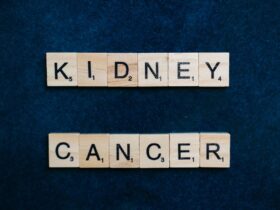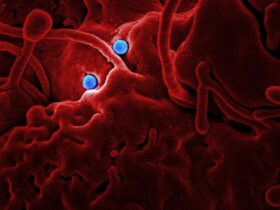Water fasting has gained immense popularity as a weight-loss technique and a detoxification method. The concept of consuming nothing but water for a set duration, typically 3 days in this case, promises rapid weight loss and various health benefits. But how effective is a 3-day water fast, and how much weight can one realistically lose during this period? These are common questions for those curious about this fasting method.
The weight you lose during a water fast depends on several factors, including your starting weight, metabolism, and activity level during the fasting period. Most of the initial weight loss is due to water weight and glycogen depletion. Glycogen, the stored form of carbohydrates in your body, is quickly used up when you restrict calorie intake, leading to a drop in water retention. While this might sound appealing, it’s crucial to understand that this type of weight loss is not entirely fat loss.
Additionally, a 3-day water fast can have significant effects on your body, both positive and negative. It may enhance mental clarity, improve insulin sensitivity, and reduce inflammation, but it also comes with risks such as dehydration, dizziness, and fatigue.
Benefits and Drawbacks of a 3-Day Water Fast
- A 3-day water fast offers a mix of benefits and drawbacks that individuals must weigh before committing to the process. One of the most immediate benefits is rapid weight loss. This can serve as a motivator for those embarking on a longer-term weight loss journey. Additionally, fasting triggers autophagy, a natural process where the body eliminates damaged cells and regenerates healthier ones. This can contribute to cellular repair and detoxification. Some individuals also report improved mental clarity and focus, which is linked to the production of ketones during ketosis.
- However, the drawbacks of water fasting must not be overlooked. Dehydration is a common concern, as the body loses significant water through glycogen depletion. Without proper electrolyte balance, individuals may experience dizziness, fatigue, and even irregular heart rhythms. Muscle loss is another risk, as the body may break down protein stores for energy in the absence of carbohydrates and fats. Furthermore, the extreme caloric restriction of water fast can lead to overeating or poor dietary choices once the fast is over, negating any weight loss benefits.
- It’s important to note that a 3-day water fast is not suitable for everyone. Those with underlying health conditions, such as diabetes, heart issues, or eating disorders, should avoid fasting or seek medical advice beforehand. Pregnant or breastfeeding women are also advised against fasting due to the nutritional demands of their condition. Weighing these benefits and risks can help individuals determine whether a water fast aligns with their health and wellness goals.
Preparing for and Recovering from a 3-Day Water Fast
Proper preparation and recovery are critical to the success of a 3-day water fast. Before starting, it’s essential to gradually reduce calorie intake and focus on consuming nutrient-dense foods. This pre-fasting phase helps the body transition more smoothly and reduces the shock of sudden caloric deprivation. Hydration is also vital, as the body will rely solely on water during the fasting period. Incorporating herbal teas or electrolyte-enhanced water can further support the body during the fast.
During the fasting period, minimizing physical activity is recommended to conserve energy. Light activities such as walking or stretching are preferable over high-intensity workouts. Rest and sleep are equally important to allow the body to focus on its natural detoxification and repair processes. Monitoring your body’s responses is crucial; symptoms like dizziness, extreme fatigue, or irregular heartbeat should prompt an immediate end to the fast.
Post-fast recovery is as important as the fasting period itself. Resuming normal eating habits too quickly can cause digestive distress. Begin with small, light meals such as fruits, vegetables, and broth before transitioning to more substantial foods. This refeeding phase allows the digestive system to adjust and prevents discomfort. To sustain any weight loss and health benefits, incorporate balanced meals and regular physical activity into your routine. Proper preparation and recovery ensure that the 3-day water fast is a safe and effective experience.
The Science Behind Weight Loss During a Water Fast
Fasting for weight loss might sound simple, but there’s a complex science behind how your body reacts to food deprivation.
- How Your Body Reacts to Fasting
- During a water fast, your body shifts from using glucose as its primary energy source to burning stored fat.
- Glycogen stores in the liver and muscles are quickly depleted, leading to significant water weight loss.
- This metabolic shift is known as ketosis, where the body breaks down fat into ketones for energy.
- Factors Influencing Weight Loss
- Starting weight: Heavier individuals may lose more weight initially due to higher water retention.
- Activity level: Staying active can increase calorie burn, enhancing weight loss during fasting.
- Metabolism: Faster metabolisms may lead to quicker glycogen depletion and fat burning.
- How Much Weight Can You Lose?
- Most people lose between 2 to 6 pounds in 3 days, depending on their body composition and lifestyle.
- Much of this is water weight, with a smaller percentage being fat loss.
- Sustainability of Weight Loss
- Rapid weight loss can lead to muscle loss if fasting is prolonged or repeated frequently.
- Maintaining weight loss depends on post-fast eating habits and physical activity.
The Science of Weight Loss During a 3-Day Water Fast
A 3-day water fast is a popular method for rapid weight loss, but understanding the underlying science is essential. When you stop eating and consume only water, your body quickly depletes its glycogen stores, which are the primary energy source stored in the liver and muscles. This depletion leads to the loss of water weight, as glycogen binds water molecules in the body. This initial weight drop can be significant, creating the illusion of substantial fat loss. However, the amount of actual fat burned during this period depends on individual metabolism and activity levels.
The body enters a state called ketosis after depleting glycogen, where it begins breaking down fat for energy. This metabolic shift is a hallmark of fasting, allowing the body to tap into stored fat reserves. However, the process isn’t without drawbacks. Prolonged fasting can lead to muscle breakdown as the body searches for alternative energy sources. Additionally, the metabolic rate may slow down as a survival mechanism, reducing the efficiency of long-term weight loss.
While the weight lost during a 3-day water fast can be visually noticeable, much of it is water weight rather than fat. To maintain any fat loss achieved, it’s crucial to adopt sustainable lifestyle changes, including balanced eating habits and regular exercise. Without these adjustments, the weight is likely to return once normal eating resumes.
Benefits and Risks of a 3-Day Water Fast
Fasting can be a double-edged sword—offering both potential health benefits and risks.
Benefits of a 3-Day Water Fast
- Rapid Weight Loss
- Helps you jumpstart a weight-loss journey with visible results in just a few days.
- Depletes glycogen stores, leading to quick water weight reduction.
- Detoxification and Autophagy
- Triggers autophagy, a process where cells remove damaged components and regenerate.
- Supports the body’s natural detox mechanisms by reducing oxidative stress.
- Improved Insulin Sensitivity
- Can help regulate blood sugar levels by lowering insulin resistance.
- Beneficial for pre-diabetic or insulin-sensitive individuals.
- Mental Clarity
- Ketosis can enhance focus and cognitive function for some individuals.
- May offer a reset for those seeking mental and physical discipline.
Bottom Line
Embarking on a 3-day water fast can lead to rapid weight loss and several health benefits, including improved insulin sensitivity and cellular repair. However, most of the weight loss is temporary, consisting of water and glycogen rather than fat. To maximize the benefits and minimize risks, it’s crucial to prepare adequately, monitor your body, and break the fast safely. While a water fast offers short-term results, incorporating healthy lifestyle changes ensures sustainable weight management and overall well-being.
FAQ’s
Q. How much weight can I lose on a 3-day water fast?
A. You can lose 3–7 pounds, depending on your body type and metabolism.
Q. Is a 3-day water fast safe?
A. For healthy individuals, it can be safe with proper preparation. Consult a doctor if you have health concerns.
Q. Can I exercise during a water fast?
A. Light activity is fine, but avoid strenuous exercise as it may lead to dizziness or fatigue.
Q. Will the weight loss be permanent?
A. Much of the initial weight loss is water weight and glycogen, which may return after resuming normal eating.
Q. Can fasting improve metabolism?
A. Short-term fasting can boost metabolism, but prolonged fasting may slow it down if muscle mass decreases.



Leave a Reply